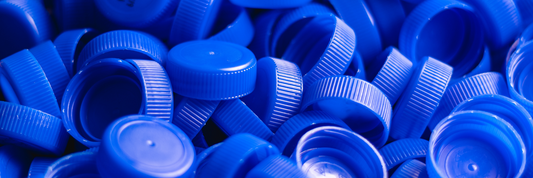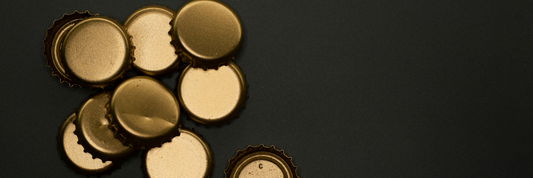Choosing the right closure for a wine bottle is more than just a practical decision; it significantly influences wine quality, aging potential, and consumer perception. For decades, corks have been the gold standard, but screw caps have gained popularity in recent years, challenging traditional norms. This article delves into the differences between corks and screw caps, comparing their advantages, disadvantages, and overall impact on wine.
- The Ultimate Guide to Wine Bottles: Types, Manufacturing, and How to Choose the Perfect Bottle for Any Occasion
- A Complete Guide to Wine Bottle Shapes and Their Significance
The Traditional Choice: Understanding Wine Corks
What are Wine Corks Made Of?
Wine corks are made from the bark of the cork oak tree (Quercus suber), which grows predominantly in Spain, Portugal, and parts of North Africa. The harvesting process, known as cork stripping, involves carefully removing the outer bark without harming the tree. This method allows the tree to regenerate new bark, making it a sustainable practice.
Cork oak trees can live for over 200 years, and the bark can be harvested every nine years. This renewable resource contributes to the environmental sustainability of cork production, offering an eco-friendly option for wine closures.
The Benefits of Using Natural Corks
- Slow Oxygen Exchange and Aging Potential: Corks allow for a minute exchange of oxygen, which can contribute to the wine's slow maturation. This process can enhance the complexity of the wine over time, especially for reds and certain whites.
- The Traditional Wine Experience: Opening a bottle with a cork provides a tactile and sensory experience that many enthusiasts cherish. The pop of the cork and the aroma released can elevate the anticipation of enjoying the wine.
- Renewable and Biodegradable Material: Being a natural product, cork is biodegradable and contributes positively to the environment, further emphasizing its appeal among eco-conscious consumers.
The Drawbacks of Natural Corks
- The Risk of Cork Taint (TCA): One of the main drawbacks of corks is the risk of cork taint caused by a compound known as TCA (trichloroanisole), which can spoil wine and result in unpleasant flavors.
- Variability in Quality and Oxygen Permeability: Not all corks are of the same quality, leading to inconsistencies in how well they seal bottles. Some wines may experience oxidation or spoilage due to poor cork performance.
- Potential for Drying Out and Leakage: Natural corks can dry out over time, especially if stored improperly, leading to leakage and potential spoilage.
- Higher Cost Compared to Screw Caps: Corks often incur higher production and labor costs, which can be reflected in the retail price of wines.

The Modern Contender: Exploring Screw Caps
What are Wine Screw Caps Made Of?
Screw caps are typically made from aluminum and plastic materials. The outer shell is often aluminum, known for its durability and ease of use, while the inner liner may consist of a plastic material or a composite that helps create an airtight seal.
Manufacturing screw caps involves processes that result in consistent production standards. This uniformity allows winemakers to benefit from a closure that minimizes variability across bottles.
The Advantages of Using Screw Caps
- Consistent and Reliable Seal: Screw caps provide a tightly controlled seal that significantly reduces the risk of oxidation and spoilage, which can yield a more consistent wine experience.
- Elimination of Cork Taint: As screw caps do not contain organic material, the risk of cork taint is virtually eliminated, ensuring that the wine maintains its intended flavors.
- Convenience of Opening and Resealing: Screw caps make opening and resealing bottles simple and mess-free. This ease of use is particularly appealing for casual drinkers who appreciate the practicality.
- Potential for Controlled Oxygen Ingress: Some screw caps come with engineered liners that allow for a controlled amount of oxygen to enter the bottle over time, which can be beneficial for certain wines.
- Often a More Cost-Effective Option: Overall, screw caps can be a more budget-friendly choice for both producers and consumers, as they typically cost less than natural corks.
The Disadvantages of Screw Caps
- Perceived as Less Traditional or Premium: Despite their advantages, screw caps can sometimes be viewed as less prestigious compared to traditional corks, leading to a bias among consumers.
- Potential Impact on Long-Term Aging (Debatable): Some wine aficionados debate whether wines sealed with screw caps can age as gracefully as those sealed with cork. While screw caps offer stability, the perceived long-term aging potential remains a discussion point.
- Recyclability Concerns with the Plastic Liner: The plastic liners used in some screw caps present a recyclability dilemma. Although the aluminum can be recycled, the attached plastic can complicate the recycling process.

Head-to-Head Comparison: Corks vs. Screw Caps Across Key Factors
Impact on Wine Quality and Aging
The choice between corks and screw caps can significantly influence wine quality and aging. Natural corks allow for a small amount of oxygen to enter the bottle, which can enhance the aging process for certain wines. This slow oxidation is ideal for red wines and some complex whites, as it helps develop their flavors over time.
On the other hand, screw caps provide an airtight seal, which can be both a blessing and a curse. While this seal prevents unwanted oxidation, it can also stifle the development of flavors in wines that benefit from aging. Some studies suggest that wines sealed with screw caps can retain their freshness longer, making them excellent options for young wines that are intended to be enjoyed quickly.
Cost for Wineries and Consumers
Cost is another important factor in the cork vs. screw cap debate. Corks can be relatively expensive, particularly if they are made from high-quality natural materials. This expense can impact the retail price of the wine. Conversely, screw caps are generally cheaper, not only in production but also in application and logistics. For wineries, switching to screw caps can lower costs and enhance efficiency.
For consumers, the price they pay at the bottle shop might reflect these production choices. However, it’s essential to remember that a higher price doesn’t always guarantee better quality wine. The closure type often has a minimal effect on consumer price, allowing for affordable, high-quality options that utilize both sealing methods.
Environmental Friendliness and Sustainability
Sustainability is an increasingly significant consideration for consumers and producers alike. Natural cork is a renewable resource, as cork trees can be harvested without cutting them down. The cork industry also supports biodiversity in Mediterranean ecosystems, making it an environmentally friendly choice when managed properly.
Screw caps, conversely, are often made from aluminum, which can have a higher carbon footprint during production. However, many companies are now focusing on recycling initiatives to mitigate this impact. While both closures have environmental considerations, the choice between them can depend on the winery's approach to sustainability.
Ease of Use and Convenience
When it comes to opening a bottle of wine, screw caps have a clear advantage in terms of convenience. They are easy to open and reseal, which is particularly beneficial for casual drinkers who may not finish a bottle in one sitting.
Cork closures require a corkscrew, and corks can sometimes crumble or break, leading to a less-than-ideal experience while opening a bottle. In contrast, screw caps eliminate this issue entirely and are especially popular in informal settings or at gatherings where quick access to refreshments is key.
Consumer Perception and Preference
Consumer perception plays a vital role in the cork versus screw cap conversation. There is a lingering stigma that wines sealed with screw caps are of lesser quality, despite significant advancements in technology. Many consumers still associate cork with tradition and essence, particularly in fine wine circles. This perceived value can influence buying decisions significantly.
However, educational initiatives and tastings focusing on premium wines sealed with screw caps are helping to shift perceptions. Newer generations of wine drinkers often prioritize ease and convenience over tradition, which may tilt the scale further towards screw caps in the future.

The Role of Wine Type and Intended Consumption
Wines Best Suited for Cork Closures
Wines that are intended for long aging generally benefit from cork closures. Varieties like Barolo, Bordeaux, and vintage Champagne thrive when sealed this way, allowing for gradual development in complexity and flavor. These wines typically have a robust structure that can handle the oxidation process, benefiting from the unique characteristics of cork aging.
Wines That Thrive Under Screw Caps
On the flip side, young, aromatic white wines and light reds are well-suited for screw caps. Varieties such as Sauvignon Blanc and Riesling can maintain their fresh and fruity profiles when sealed this way. The airtight seal ensures that these wines retain their crisp acidity and vibrant flavors, responding well to immediate consumption scenarios.
The Growing Acceptance of Screw Caps for Premium Wines
There has been a notable shift within the wine industry, with more premium wines opting for screw caps. As winemakers look for ways to ensure wine consistency and avoid the risks associated with cork taint, many are embracing screw caps for high-quality offerings. This trend indicates a growing acceptance of alternative closures, showing that screw caps can elevate even the finest selections.
Conclusion
There is no single "best" option when it comes to wine closures. Each type—be it cork or screw cap—has its strengths and weaknesses. Corks allow for aging and development, while screw caps offer convenience and freshness.
As a wine consumer, it’s essential to consider your own preferences and the specific wine type when making a judgment. Whether you're a traditionalist who loves the ceremony of opening a corked bottle or a modern drinker who values ease and accessibility, the right choice often depends on individual taste and lifestyle.
Frequently Asked Questions (FAQ)
FAQ 1: Does a screw cap mean the wine is cheap or low quality?
No, a screw cap does not indicate low quality. Many premium wines utilize screw caps, focusing on freshness and consistency rather than traditional perceptions.
FAQ 2: Can wines with screw caps age as well as wines with corks?
While screw caps can enhance the freshness of wines, they may not allow for the same aging process as cork. However, some wines sealed with screw caps can still develop nicely over time.
FAQ 3: Is one type of wine closure more environmentally friendly than the other?
Both closures have environmental impacts. Cork is renewable and supports biodiversity, while screw caps focus on recycling initiatives. The best choice can depend on a winery’s sustainable practices.
FAQ 4: Why do some winemakers still prefer using natural corks?
Many winemakers choose natural corks for their traditional characteristics, the perceived quality of wines, and the natural aging process that cork allows, which they believe enhances the wine's complexity.









